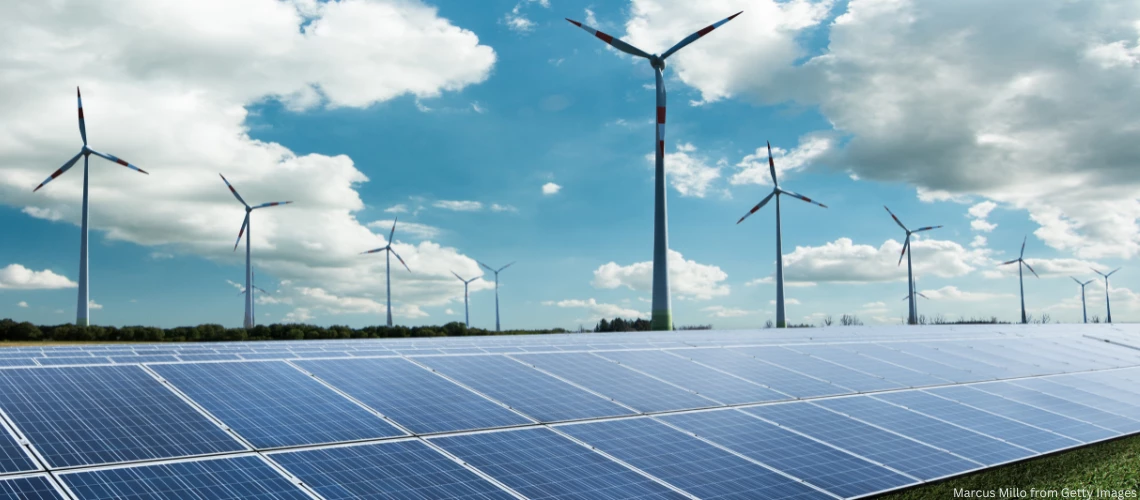 Photo: Marcus Millo from Getty Images
Photo: Marcus Millo from Getty Images
Regulatory risks—risks resulting from government actions—can impede foreign direct investment, (FDI) flows. These actions include arbitrary and unpredictable regulatory and policy changes, seizure of assets, dishonoring of contracts, and unequal protection under the law. Such actions by host governments may violate both implicit and explicit terms of contract with investors.
Apart from impeding FDI flows, these risks can also impact the ability of countries to retain and expand investment. In some cases, it can lead to legal disputes, where investors directly sue governments. These disputes are costly—from both financial and reputational perspectives. Merely responding to a dispute can cost countries millions of dollars and resulting damages can run into billions.
In developing countries, regulatory risks can slow down critical investments for energy transition. The World Bank report—Enabling FDI in Renewable Energy Sector—explores regulatory risks in the renewable energy (power generation) sector and how it impacts countries’ FDI competitiveness. What measures are currently available to address investor issues related to such risks? And what types of policies and measures can governments put in place to reduce such risks to enable FDI?
Reaching net-zero by 2050, while providing reliable access to electricity for all is a dual challenge that developing countries are grappling with. Recent estimates indicate developing countries need investment of about $1.7 trillion annually to meet renewable energy targets. FDI can contribute significantly towards this, with the added advantage that investors also bring in technology and knowledge. While globally, green FDI (including in renewables) has increased consistently over the past few years, advanced economies are getting a higher share, compared to developing countries. It is therefore crucial that developing countries systematically address impediments to investments to improve their competitiveness in being able to attract FDI.
The nature of the renewables sector and its large-scale financing needs make it especially vulnerable to regulatory risks. Because the sector needs substantial upfront investments and assured demand, investors require longer-term contracts. As a result, many past contracts are linked to incentive schemes that were put in place when the costs of renewable energy were high. As the costs of renewables decreased over the years, governments have found themselves locked into contracts at high rates and often need to either raise prices for consumers or change contractual terms. In many countries, some sectors such as utilities, water, and electricity are considered as “public interest” and subject to close state supervision, often resulting in unpredictable interference. The public procurement processes that the renewable energy sector uses, are often complex and non-transparent.
This has caused numerous investor-state disputes across the world (over 1300 by December 2023). The World Bank’s report reviews such disputes. As of February 2022, about 10 percent of these disputes are in the renewable energy sector. While most disputes in the sector are in the Europe and Central Asia region, with the rising volumes of FDI in renewable energy in developing countries, these countries too are becoming increasingly exposed to possible disputes. The solar power generation subsector had the largest number of proceedings (due to the technology’s market dominance and the spread of measures focused on this technology), followed by hydropower and wind energy. The most common type of risk associated with these disputes is regulatory uncertainty—that is, sudden and adverse changes in regulations.
Increasing FDI in renewable energy to achieve sustainable development and climate goals will require sound strategies to minimize such regulatory risks. At a policy level (that is, in addition to transaction-specific measures such as political risk insurance and blended finance), countries may consider at least four key strategies:
- First, enable more transparent and consultative rulemaking for the renewables sector (for example, on tariff-setting or regulatory requirements; regulatory monitoring and impact assessments).
- Second, put in place frameworks to allow for well-informed and reasonable contract negotiations (and re-negotiations).
- Third, put in place institutional mechanisms to address specific investor concerns in a timely and effective manner—these may be established at a national, sectoral, or contract-specific level. Experience underlines the importance of having a lead agency with political support, legal mandate, and technical expertise to coordinate such a mechanism.
- Fourth, revise investment rules—for both domestic and international investors—to better balance investor rights (for example, to protect investors against breach of contract, non-transparent government actions), and to achieve public policy objectives (including environment protection and climate change).
Furthermore, where mechanisms such as feed-in tariffs and auctions are used, their design needs to be tailored to country-specific conditions (taking into account market prices, trends in renewables costs, and maturity of the market) and periodically reviewed. Improving the investment climate in these ways can be a relatively cost-effective way for countries to reduce regulatory risks, improve investor confidence, and ultimately boost FDI.


Join the Conversation